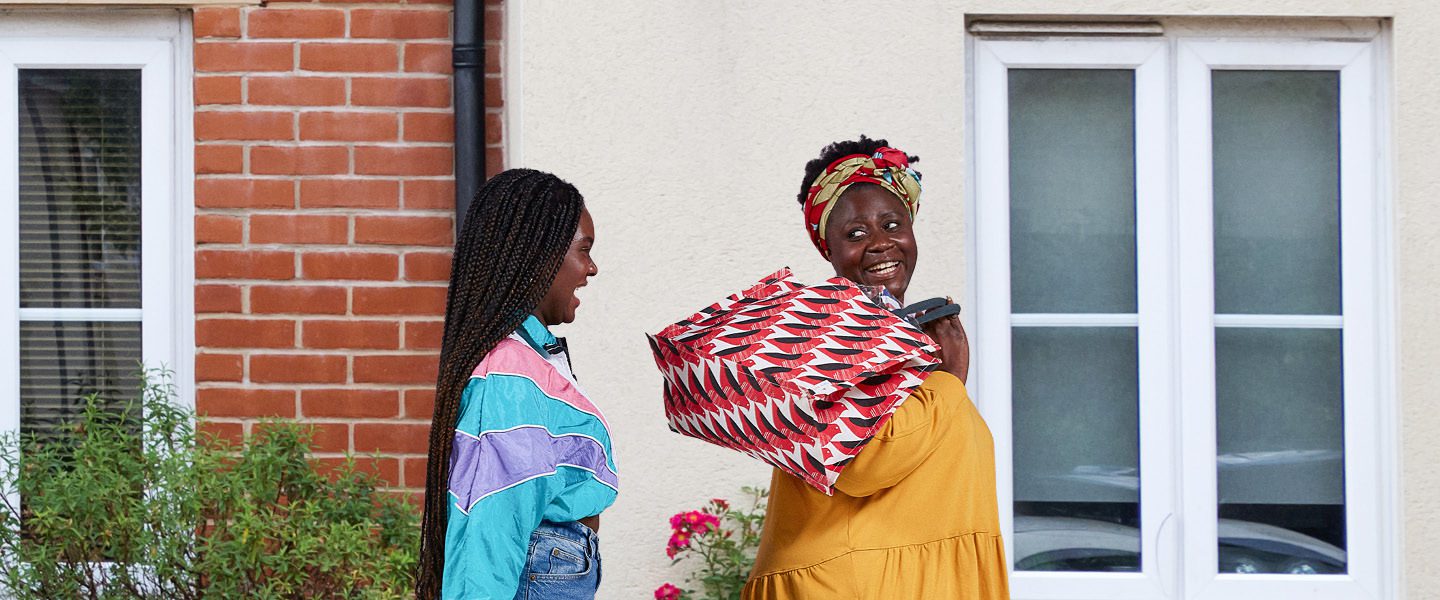Switch out short car journeys for walking and cycling
How often do you jump in the car? Did you know that around 60% of 1-2 mile trips are made by car (Gov UK)? Switching out short trips in the car for walking, cycling or public transport can have a massive impact for the environment and help keep you fit and healthy. Win, win.
In the UK, transport is 24% of total greenhouse emissions, and within that 52% of transport emissions come from passenger cars (Gov UK). As well as releasing a lot of carbon into the atmosphere, the increased use of cars also causes traffic, noise pollution and air pollution - dramatically decreasing the quality of the air we're breathing. In 2021, the Court of Justice of the European Union ruled that the UK has systematically exceeded air pollution limits to dangerous levels and getting in our cars less is one way to help bring these levels down.
These tips are part of something bigger. At Hubbub, we want to see a world where everyone makes choices that are good for the environment. Check out what we do and how your actions add up.
So how can we switch out the car?*
1) Walk, scoot, roller-blade or ride a bicycle.
…you’ll not only cut emissions but likely feel great from the exercise (and money saving) too. What’s not to love? The idea of biking up hills or for longer distances? Try an e-bike or e-scooter, and if you have lots of things (or small people) to carry, why not try a cargo bike.
2) Use public transport.
Depending on where you live, taking the train, tram or bus usually doesn’t take much longer than driving, and can be far quicker when considering traffic and parking. You can also work, read or relax on the way so turn up looking and feeling fresh.
3) Try ride sharing.
Have you ever noticed how many single people are each driving their own individual cars? If you do need to drive somewhere, why not turn 3 cars into 1 and catch a lift, share space (and snacks) and have some company.
What about electric cars?
Whilst there is a lot of focus on the role of electric vehicles (EVs) in tackling climate change, reducing the number of cars on the road – and how frequently they’re used - is still very much needed. This is because a significant source of emissions is in the manufacture of vehicles - even EVs. Also, switching to EVs won’t help traffic, and still causes air pollution from tyres and brakes.
*Of course, there are exceptions to this. Some people are disabled, or may live in remote areas, so need a car to get about.
Curious to know more about driving down pollution?
Watch: Do you know how air pollution impacts your body? Watch this short video from the World Health Organisation which explains why air pollution is bad for our health.
Read: Want some walking inspo? The Walker's Guide to Outdoor Clues and Signs has everything you need to know to make your morning walk a little more interesting. With chapters on wildflowers, animals, algae and rocks it can teach you the clues on when you'll need to take brolley or sunglasses out with you.
Listen: Did you know that 4/5ths of people in the UK rarely, if ever, get on a bike? This episode of our podcast 'Down To Earth' explores how communities and councils are getting more people on wheels, and making it safer for everyone to cycle.
Making waves in the workplace
Have you heard of the Cycle To Work Scheme? Bikes can be expensive, so speak to your employer about signing up, and it can help you get a great quality bike and all the gear you need for cheaper, as well as paying it off monthly instead of all at once.
What happened when Hubbub tried it?
In 2021 we launched our first bike library with Cycle Sisters and Sustrans in Tower Hamlets (a London borough with one of the highest rates of air pollution). We discovered that Muslim women and women of colour are less represented in cycling despite many wanting to give it a go, so set out to break down barriers and get more women cycling within the community.
Want to stay in the loop?
Sign up to our newsletters to be the first to know about new campaigns, launches, tips, research and environmental news. You’re in for a treat.

